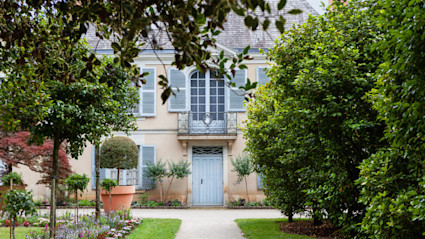How much do second homes really cost?
The median U.S. home price is $410,800, which fluctuates based on current market conditions and interest rates. The sales price of your second home is just the first expense in your “business” as a second homeowner. Prepare for the financial responsibilities of second homeownership by budgeting for:- Property taxes
- Utilities
- Repairs
- Homeowners Insurance
- Property maintenance
- HOA fees (if required)
- Furnishings/household necessities
- A property manager (if needed)
What are my financing options?
Financing options lower upfront costs and make it more accessible to buy a second home. However, some lenders have specific requirements for qualification, such as proximity of a primary home to the property or a minimum number of days one must occupy the premises.Here are four types of loans to consider:- Conventional loans: You may have taken out a conventional loan for your first property, and it’s a common solution for secondary homes. Conventional loans take your credit score, debt-to-income ratio and down payment into consideration to determine your monthly payment.
- Cash out finances: A cash-out option lets you take out current equity in your primary home and use it to finance a second investment property.
- Home equity loans: This type of loan allows borrowers to start a second mortgage by borrowing against the equity of their first home. This option often comes with higher interest rates.
- Co-ownership: This financing option splits the expense of a second home among multiple people, and platforms like Pacaso make it accessible to co-purchase homes in high-end areas, such as London.
How will you use the property?
Most people purchase second homes for one of three investment purposes: short-term rental, long-term rental or later resale. Each has its pros and cons, so it’s critical to understand the differences before making an investment.1. Personal vacation asset for later resale
If you’re buying a home as an investment but have no intention of renting it out, your purchase falls under this category. It’s a good option for those who don’t want to manage tenants but want the benefits of a long-term investment property in an area they love to spend time in, such as a home in California’s coveted wine country.| Pros | Cons |
| Allows you to enjoy your second home whenever you want | Provides no active income streams |
| May not require a property manager | Requires higher insurance rates because it's not a primary residence |
| Avoids hassles and damage from renters | May require paid services for lawn care and snow removal |
| Easier to finance than a rental property |
2. Short-term rental
Whether you’re buying a second home to rent out or plan to rent out your new property, short-term renting is a great way to get started with lower-commitment tenants. It has grown in popularity for good reason, and the short-term market is expected to grow beyond $183 billion by 2029.| Pros | Cons |
| Can use it as a personal vacation home | More expensive in popular destinations |
| Generates an income stream to help defray mortgage and maintenance costs | Must be furnished and decorated upfront |
| Undergoes frequent maintenance and cleaning for guests, helping it maintain value | Requires you to maintain an active listing on a short-term rental site |
| Positions you as the responsible party for guest problems, complaints, etc. | |
| May not be allowed under HOA regulations or local laws | |
| May not provide consistent income if reservations fluctuate | |
| May require a business insurance policy in addition to higher insurance rates |
3. Long-term rental
Long-term rentals are the “set it and forget it” option of the real estate world, offering consistency and predictable revenue. While management is still essential, it can be minimal, especially with good tenants and a well-maintained property.| Pros | Cons |
| Provides a reasonably consistent income stream | May not be as lucrative as a short-term rental |
| Requires less work than a short-term rental | Puts more wear and tear on the house than short-term rentals |
| Allows you to vet home occupants before renting to them | May create additional hassle if renters don't pay |
| Doesn’t require furnishing, decorating or household items | May sit vacant for long periods without viable rental applicants |
What are the mortgage and tax differences between types of properties?
Is buying a second home a good investment, fee-wise? You can expect higher interest rates, down payments and credit score requirements on a mortgage for investment properties compared to primary and second homes, so make sure to account for this difference. The criteria lenders use to determine taxable rental income and tax benefits for second homes are often similar to those the IRS and tax professionals use. Tax benefits for investment properties include deductions for rental expenses, depreciation and losses.| Investment homes | Secondary homes | |
| Mortgage rates | Often 0.5% to 0.75% higher rates compared to a primary residence | About 0.25% to 0.50% higher rates than a primary residence |
| Property tax rates | Pays residential taxes, no homeowner exemptions, can deduct rental expenses | Pays residential taxes, mortgage property taxes and interest can be deducted via IRS |
| Down payment amounts | 25% down payment for rental properties | 10% down payment for a second residency |
| Qualification standards | More challenging to qualify, requires strong credit and cash reserves | Easier to qualify, dependent on a strong credit score |
How do second homes and investment properties differ?
A second home is best for owners who want flexible access to their property. These general rules apply for second homes:- Must be occupied by the owner for 14 days or more each year
- Cannot be used as a rental property for more than 180 days each year
- Must be located at least 50 miles from the owner’s primary home
- The owners use it fewer than 14 days each year.
- May be used as a rental property for any period.
- May be within 50 miles of your primary residence.
Will I get a good return on my investment?
To determine how much you’ll make from renting out a second home — and when you can expect a return on your investment — you’ll need a grasp on how much annual rental income it can earn. Here’s how to estimate an annual rental return from a second home investment property:- Calculate the total earnings you expect in a year, researching local rent occupancy rates for an accurate rental estimate.
- Subtract projected management, maintenance, cleaning and repair fees.
- Subtract mortgage, property tax and insurance fees.
- Research housing market trends for comparable homes.
- Subtract expected agent costs and closing fees.
- Total and subtract estimated property expenses over the ownership timeline.

Co-ownership option
Now that you know how to buy a second home to rent, the decision boils down to whether or not you want the responsibility of tenant management or a turnkey and fully managed vacation home. Buying a second home for investment purposes may be best for income, but owning a share of a home is more streamlined and hands-off. Pacaso lets you own as little as 1/8th of a home while taking care of obligations like maintenance and taxes. It's not a timeshare — you can sell your portion of ownership on the Pacaso marketplace whenever you’re ready to move on.Find a second home in the destination of your dreams today to take the first step towards the lifestyle you’ve always wanted. DISCLAIMER: This content is published solely for informational purposes, and it is not intended to be investment advice. You should consult with an appropriate professional for specific advice tailored to your situation.Buying a second home for investment FAQ
01: Is a second home considered an investment property?
When a second home is primarily used as an income source, it’s considered an investment property. The IRS considers your second home as a private residence if you reside there for 14 days or more each year, or more than 10% of the total days it is rented to a tenant.
02: Is buying a second home a good investment?
Whether buying a second home is a good investment depends on your financial goals, the intended use of the property and market conditions. If the property appreciates and generates rental income against its expenses, it can be a sound investment.
Carefully consider the costs, potential risks such as vacancy periods, and your personal financial circumstances before buying a second home. Keep in mind that variables like market demand shape earnings, so the ultimate return isn’t guaranteed.
03: Which is better for taxes: A second home or investment property?
An investment property is best suited for IRS tax deductions, such as depreciation, repairs, and miscellaneous operating expenses. While second homes are also eligible for certain tax breaks, the owner must meet specific usage criteria, like renting it out for less than 180 days per year.
04: What is the 2% rule in real estate?
The 2% rule states that the monthly rent for the property should be at least 2% of the purchase price. It helps landlords determine how much they should charge for rent. While it’s a good general measure, it may not be feasible to reach 2%, especially in high-cost-of-living areas where real estate values are disproportionately inflated.
05: What is the 70% rule in house flipping?
The 70% rule in house flipping, also known as the golden rule, helps buyers decide how much they should pay for an investment property. The rule states that a house flipper should not offer more than 70% of the home’s after-repair value to buy the house.
This figure should account for the estimated cost of home repairs and upgrades. It’s also important to take other expenses such as permits, loan interest, utilities, inspections and resale fees into consideration.
06: Is buying a second home and renting the first a good idea?
Buying a second home and renting the first one may make sense if your primary home is in a region with high demand and competitive market rates. It can provide an income source that directly pays off your new home, but it’s important to budget for any expenses associated with preparing a home for rental.










